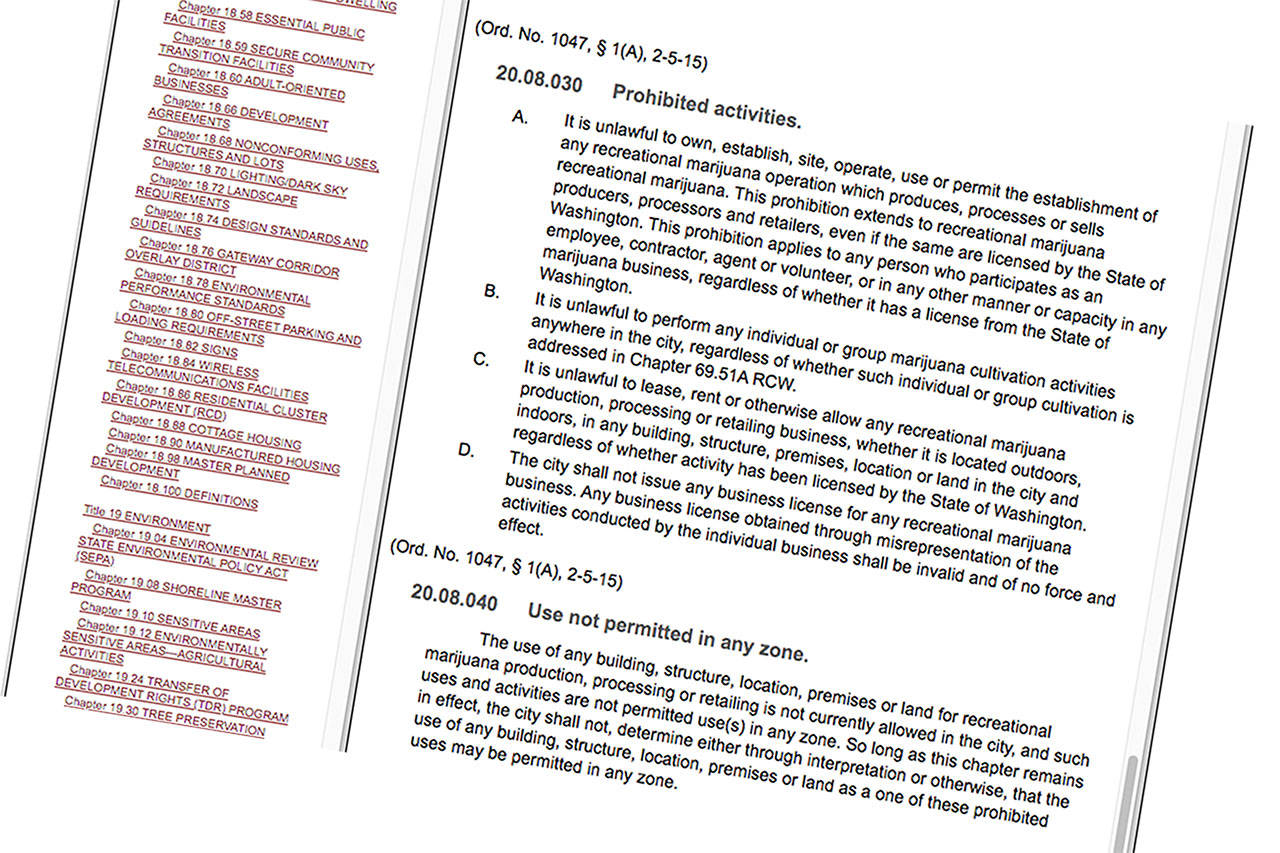Black Diamond could become a little more green in the future, as the city council is considering doing away with anti-marijuana code.
Council members discussed the prospect of allowing marijuana retailers, producers, and/or processors inside city limits during their April 8 workshop.
The main draw, it seems, is tax revenue: even just allowing a pot shop to open in Black Diamond would give the city access to a portion of the state’s marijuana excise tax. And, of course, if a shop ever did open up in the city, Black Diamond would then see some sales tax revenue flow in as well.
“We’re leaving money that we desperately need on the table,” said Councilmember Chris Wisnoski. “And then when we look at sales tax, right, if you look at one store that’s selling half a million a month over a year, that’s a good amount of sales tax revenue.”
According to the Washington State Treasurer, Washington state collected just about $400 million in legal marijuana income and license fees in 2019 — the vast majority of which came from the state’s 37 percent marijuana excise tax.
Most of the money goes into the state’s general fund or into what’s called the Basic Health Plan Trust Account, which provides basic health care services to working people who otherwise lack coverage.
However, state law stipulates that cities and counties also get a portion of that cash — $20 million, to be exact.
This pot is split three ways: 30 percent goes back to cities and counties that generate marijuana excise tax revenue for the state, and another 60 percent to counties that allow marijuana establishments within its borders. The remaining 10 percent, then, is distributed to cities that allow marijuana establishments, but don’t have one, based on population.
For example, Buckley — which has the only two marijuana stores on the Plateau at the moment — received $70,000 in marijuana excise tax revenue from the state in 2020, according to the city’s 2021 budget.
But because Black Diamond doesn’t yet have a marijuana establishment, it’s likely the city would see far less if it changed city code. According to Finance Director May Miller, cities that allowed marijuana establishments — but didn’t have one in operation — received something between $6,000 and $8,000 from the state.
That may not seem like much, especially for a city that expects to see nearly $9.5 million in revenue flow into its coffers in 2021, but, “At the end of the day, money is money in the city,” said Councilmember Melissa Oglesbee. “Revenue is revenue and business is business, and we want to be business-friendly.”
While the council as a whole decided to send the issue to its Planning Commission — which will help draft new legislation and determine where, if anywhere, a marijuana establishment could open inside city borders — not all council members seem on board for making a change.
“Yes, there is revenue to be made, especially with some of these kinds of sales, and we desperately need to grow our retail spaces in general,” said Councilmember Kristiana de Leon. “But with all of that in mind, because there might be a lot of different rules around where this kind of a shop or these kinds of facilities might be built, I’m concerned about what that means for other long-term range planning considerations.”
Councilmember Bernie O’Donnell also voiced some concerns.
“I’m not sure that would be a big windfall,” he said of the portion of money the city could receive from marijuana excise taxes. “I’d rather us be promoting something else.”


